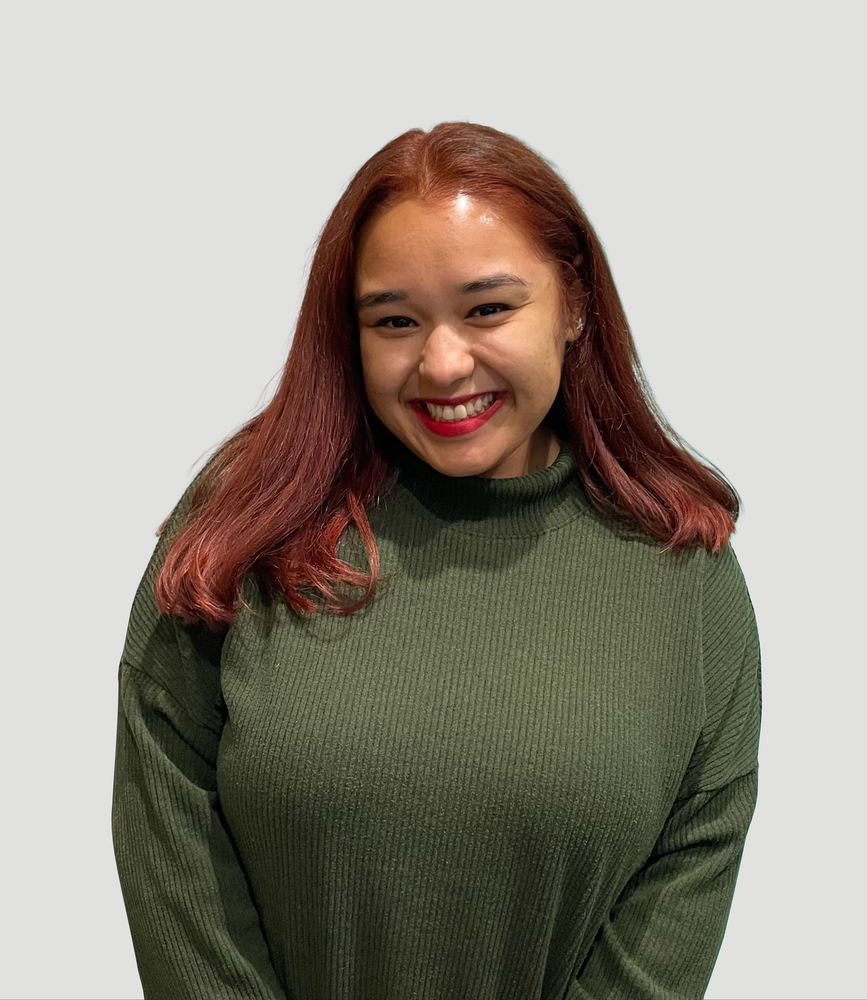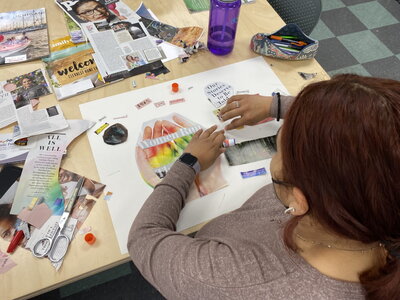
Beatriz Jiménez, a student in the Department of Spanish and Portuguese, is a member of the 22—23 graduate cohort for “Imagining Otherwise: Speculation in the Americas,” the Humanities Research Institute's inaugural Interseminars initiative funded by the Mellon Foundation. She shares about her experiences with Interseminars below.
How has the Interseminars Initiative impacted the way you approach your research?
The Interseminars initiative “Imagining Otherwise: Speculation in the Americas” has made me expand the way I approach my research. I’ve realized that having an open mind and using a different eye only makes the research more fruitful. Hearing my fellow cohort members discuss their research has given me the opportunity to reflect and realize similar questions we want to tackle— just in different ways. It has allowed me to not only consider the object of study, but to also consider the way that others are affected by this object of study. Normally, in a literature and culture program, we don’t work directly with the people who we are studying, so having the people in mind is crucial to ensure we are only uplifting those underrepresented voices. I constantly am thinking now how a film does or does not give access to stories that otherwise would not be accessible. “Imagining Otherwise” has opened up many possibilities to reflect on what it means to reach a world where those voices aren’t silenced.
Can you describe a group interaction or activity from Interseminars that has been particularly memorable?
One of the most memorable activities from Interseminars was when we each had to create a collage with images from newspapers to visualize the type of world our research could imagine. It was a unique activity where we had to “imagine otherwise” through a collage. In my current research, I study films that give access to stories that otherwise would have not been accessible. These films include the way violence is represented in Mexico due to the drug cartels. Narco films and TV shows tend to focus away from those affected by the violence and instead center on men and the gruesome violence that is produced. In my collage, imagining otherwise included a world where women were allowed to share their stories without fear of retaliation or being placed in danger. It is also a future where women aren’t victims of cartel-related violence. Throughout the collage, I imagined what a liberating world could be.
“The study of these types of films is not only to bring awareness to these problems, but to also show how cinema can be a place of documentation, specifically on how communities can archive their struggles as alternative sites of history and racial formation.” — Beatriz Jiménez

Not only was creating the collage a great experience, but the most fruitful part was being able to share the futures everyone in our cohort wanted to see through our research. It only reminded me that despite all coming from different disciplines, that we all have similar goals of reflecting how speculation gives different ways of living and seeing the world. We all have very different approaches to our research, but we are all concerned with the ways we can give voices to those that have systematically been erased or ignored.
The Humanities Research Institute's Interseminars Initiative is gearing up for the second round of the grant in 23—24. Learn more about Interseminars. View the Faculty Call for Proposals (tenure-stream faculty only) and the Graduate Fellowship Call for Proposals.
Humanities Research Institute
Editor's note: This story first appeared on the Humanities Research Institute blog.